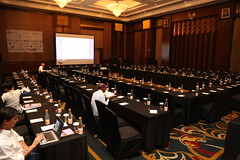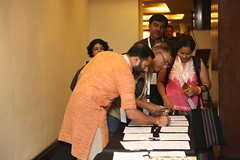Download: Land Matrix Call for Self-Nominations
Deadline: 15 February 2014
The initiative is currently coordinated by CIRAD, CDE, GIGA, GIZ and ILC. It is implemented through a network of in-country partners and data coordinators. Through this call, three new partners will be considered, who will respectively coordinate the data collection and facilitate regional networks, research and communication activities for Latin America, Asia and Eastern Europe & Central Asia.
The three new partners will be responsible for collecting and managing data for countries in their region, including regular updates and quality control. For details of data collection procedures see www.landmatrix.org/about. A major aspect of this task will be facilitating a network of organisations and individuals in the region with an interest in providing data and using the dataset to inform their work.
Land Matrix partners are responsible for meeting their own financial obligations for their activities within the partnership. While joint fundraising is possible, Land Matrix partners will be expected to be prepared to carry a large proportion of expenses themselves. Limited seed funding of up to USD15,000 for each region may be available on an as-needed basis.
APPLICATION AND SELECTION PROCEDURE
Please submit a brief 3-5 page concept note addressing how your organization meets the requirements below and how it plans to coordinate around the following areas: data-collection, network-building, research and communication.
The concept note should also include a full budget for at least one year, indicating the portion of the budget that will be borne by the host organisation and that for which funding support is requested, as well as the strategies that will be used to ensure the financial sustainability of the initiative beyond the first year.
Proposals are to be submitted by 15 February 2014 to s.forno@landcoalition.info. Applications will be assessed through a participatory process involving Land Matrix founding partners and ILC regional coordinators. Selected institutions will be notified by 12 March 2014. We expect the prospective partner to have identified a Regional Data Coordinator and set-up a Regional Data Unit by 10 April 2014.
The Regional Data Coordinator will be trained in using the Land Matrix database at a training workshop to be organised in April 2014 (travel expenses will be covered by the Land Matrix partnership).
Requirements
- The organisation must have expertise in issues related to land, agriculture or rural development in the region – ideally in large-scale land acquisitions (LSLAs).
- The organization must be well integrated into networks working on land-related issues in the region, and enjoy a good regional reputation.
- The organization must have a diverse network of partners in the region, including local communities, civil society, governments, scientific community, development cooperation, journalists etc.
- The organization must be able to disseminate and promote their work in the Land Matrix in different forums and platforms (nationally and regionally).
- The organization must be willing to provide dedicated staff to the initiative, ideally a full-time Regional Data Coordinator and required assistants (Regional Data Unit). The Regional Data Coordinator is required to participate in the above mentioned training workshop.
- The Regional Data Unit should have technical experience in collection and management of standard and ideally geographical data, both direct (methodologies, surveys, plotting) and computer-assisted (intermediate to advanced knowledge of concepts such as working with datasheets, polygon-mapping, GIS, relational databases, online editing tools).
- The organization must be able to assist the Regional Data Coordinator in the identification of potential regional/national sources of data for LSLAs from CSOs, government, international organizations and other information holders.
- Key staff members of the organization must have a good command over English. Other regional languages are a plus.
- The organisation must agree with the Principles by which the Land Matrix Partnership operates (see below).
- The organisation must be willing to ensure close coordination with the other coordinating partners of the land matrix, and participate in an annual partners meeting.
What is the Land Matrix?
The Land Matrix is a global and independent land monitoring initiative that promotes transparency and accountability in decisions over land and investment. The Global Observatory www.landmatrix.org provides an overview of land acquisitions at global level. It offers clear and communicative data visualizations. Users can access data through multiple entry points www.landmatrix.org/get-the-detail/ (by target country, by target region, by crop, by intention of investment, by investor, by investor country, by investor region, by data source type). The Land Matrix monitors deals that are made for agricultural production, timber extraction, carbon trading, industry, renewable energy production, conservation, and tourism in low- and middle-income countries.
PRINCIPLES
The Land Matrix initiative is led and inspired by the following principles:
Decentralized : In order to provide an unbiased, updated and representative observatory of land deals, the Land Matrix relies on a decentralised data collection strategy. This is achieved through the creation of regional and national networks of information providers, as well as through crowdsourcing.
Independent: The Land Matrix is a public tool independent from any single interest group other than a common belief by its partners in the importance of open data and the need for inclusive and evidence-based decision-making over land resources.
Open: The Land Matrix data and visualisations are available for anyone to use, for any purpose, at no cost. It aims at providing a comprehensive package for independent multiplications of the model, and will incorporate innovations by its open source community.
Relevant: The Land Matrix will be as strong as its relevance for users, and as strong as its actively involved collaborators and co-creators. The Land Matrix is conceived as a service provider, offering support on demand on: data collection and research; decentralized crowd-sourcing strategies; strategic use of data for policy influence.




